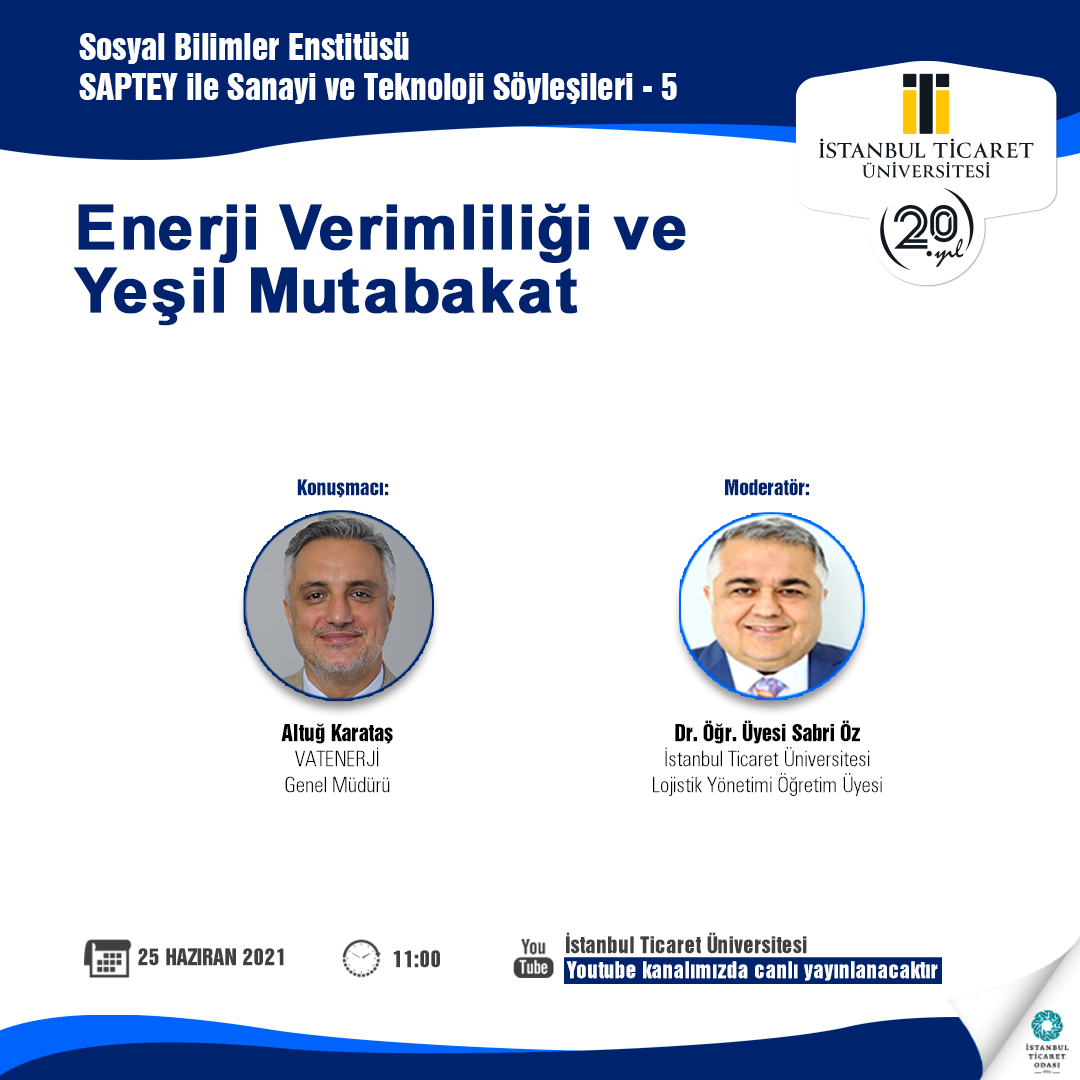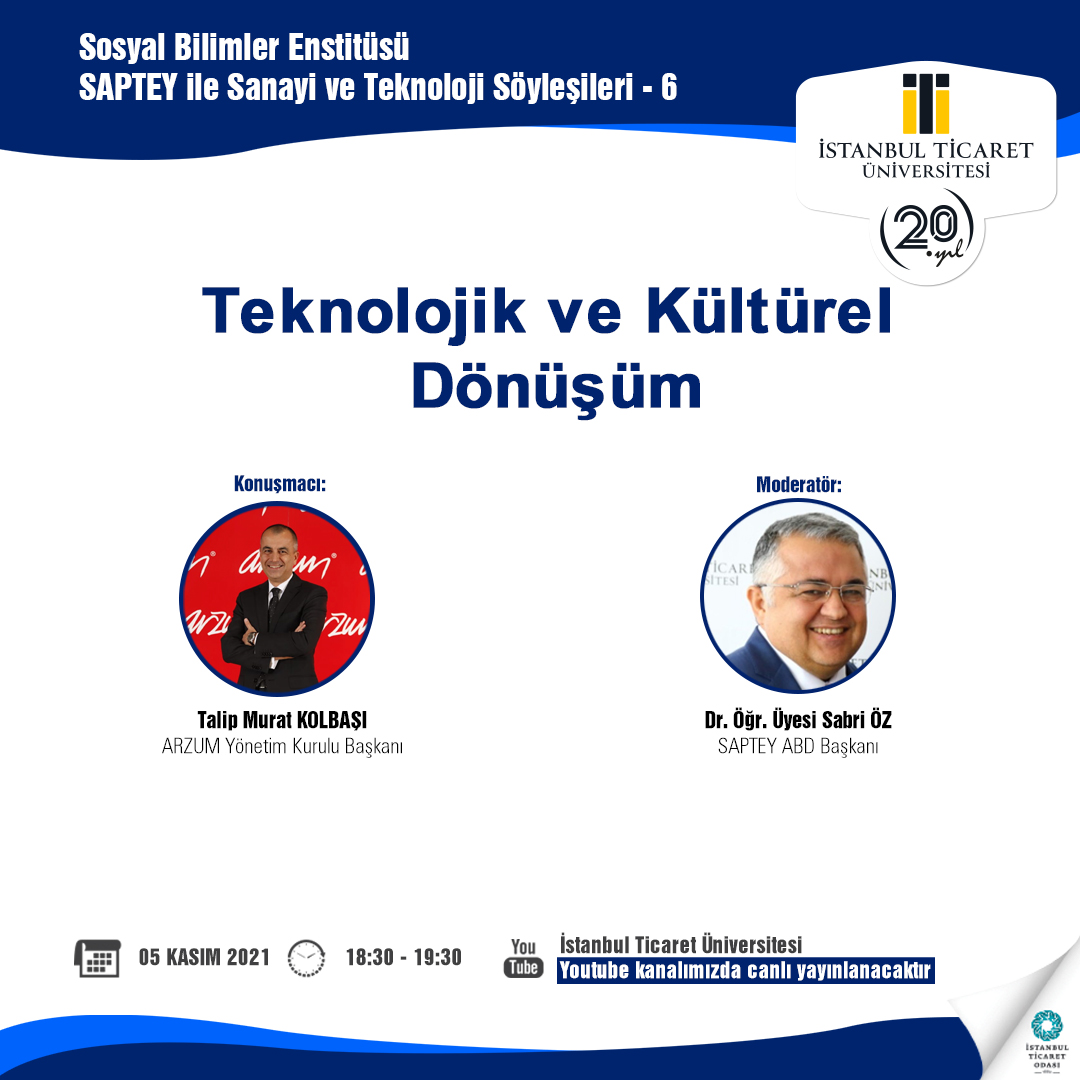Director of the Institute of Social Sciences Prof. Dr. The seminar, moderated by Figen Yıldırım, was attended by Economist Prof. Dr. Kerem Alkin and Istanbul Commerce University Faculty Member Dr. Oğuz Demir attended as a speaker.
At the opening of the program, Rector Prof. Dr. Yücel Oğurlu made a greeting speech and stated that digitalization accelerated during the epidemic period and stated that Turkey quickly adapted to the new normal.
In the first part of the seminar, Prof. Alkin stated that the world was caught unprepared for the Covid-19 epidemic and that a period was entered in which states intervened more in the economy and made the following assessments: “2. When World War II is left out, the biggest demand shock since the great depression of 1929 has been encountered. The 1929 Crisis lost around 15% of real income worldwide. This crisis emerged with the intervention of states in the economy, which is an extension of Keynesian policies. In the first period of the pandemic, it was predicted that there would be a supply shock from China and no action was taken against its global effects. However, with the spread of the epidemic on a global scale, the USA and Europe have become the center of the epidemic. National and international transportation has come to a standstill and economic activities have slowed down. Many businesses have been temporarily closed, according to the figures of the ILO, 2.7 billion employees are in quarantine and 1 billion 875 million students have switched to online education. As the crisis continues to affect the business world, it is predicted that there will be new developments in labor and employer law with the bankruptcy of companies.
“Great States Failed in Health Management”
Dr. Lecturer Oğuz Demir, on the other hand, put forward a general picture of the global economy before the epidemic and stated that the debt burden in the global economic system will gradually become heavier after the epidemic. Stating that income inequality has increased more due to the inability of production to meet the debts in the global economic system, Oğuz said: “While the total debt of companies and states in the global economy is 132 trillion dollars, the added value produced is around 85 trillion dollars. Simply put, the world’s production does not meet its expenditure. This situation causes a global debt accumulation. In addition, 82% of global wealth is in the hands of a minority such as 1%. Therefore, contemporary economists bring up the representation of income justice and stakeholder capitalism, in which economic as well as social problems are tried to be solved. While large state economies and companies will turn to a policy of increased social responsibilities, they have had to face the Covid-19 epidemic. However, it has been revealed that states are failing in the health sector. Turkey differed from the world in terms of the health sector and showed a good performance.” According to Demir, after the Covid-19 epidemic, the international economic system will continue to experience the problem of debt accumulation.”
“The Epidemic Will Cause Changes in Employer and Employee Relationships”
In the question and answer part of the seminar, Prof. Kerem Alkin answered the question from the audience about how the epidemic will shape the working world: “Global demand shock can deepen the international debt problem, and it is also expected that there will be changes in the classical company organization, in the relationship between CEO, manager, employee and spatially. Squeezing large numbers of employees into small offices will have to be reassessed according to remote working conditions and customers’ social distancing rules.” Alkin added that in the context of foreign trade, in addition to the defense industry, sectors such as agriculture, livestock, food and health will be organized according to the strategy of self-sufficiency and the weight of national economic policies will increase.
“July is Important for the Normalization Process”
prof. Reminding the responsibilities of actors such as the IMF and the USA, Alkin stated that it would not be acceptable to continue economic pressures on states such as Iran and Venezuela while there is a global threat. In his prediction about Turkey, Alkin mentioned that the month of July is important in terms of the normalization process in scenarios for the crisis and that plans will be made accordingly.
“Tourism Sector Will Be Affected Most”
Finally, Dr. Oğuz Demir pointed out the importance of the tourism sector and emphasized that tourism will be one of the sectors most affected by the crisis and that measures should be taken for this situation.

